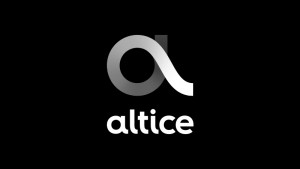
After more than 40 years of operation, DTVE is closing its doors and our website will no longer be updated daily. Thank you for all of your support.
Altice confirms guidance after solid Q2 despite media decline
Altice Europe has managed to confirm its financial guidance for the full year after turning in a solid Q2 performance in the face of the impact on the coronavirus crisis which, among other things, saw its media revenues plummet due to the collapse of the advertising market and the suspension of sports.
 Revenue for the quarter was €3.54 billion, down 1.2%, with the French business stable, Portugal declining by 4.2%, and Israel up by 4.5% but flat at constant currency. Ad tech business TEADS saw its revenues drop sharply, but cost cutting measures and a wider adoption of its self-serve ad platform meant that EBITDA from this unit also grew strongly. Revenue from Altice’s Dominican Republic business was also down sharply.
Revenue for the quarter was €3.54 billion, down 1.2%, with the French business stable, Portugal declining by 4.2%, and Israel up by 4.5% but flat at constant currency. Ad tech business TEADS saw its revenues drop sharply, but cost cutting measures and a wider adoption of its self-serve ad platform meant that EBITDA from this unit also grew strongly. Revenue from Altice’s Dominican Republic business was also down sharply.
Adjusted EBITDA overall came in at €1.439 billion, up 0.2%.
Altice’s French residential fixed access base grew by 37,000 net ads in Q2, up from the 31,000 net adds recorded in the same period last year, even though shops were closed in April and May. Fibre net adds reached 100,000 in Q2. Contract mobile customers grew by 99,000.
The improved subscriber performance helped lift revenue, but this was offset to some extent by lost roaming revenues and the decline in the media business. Media revenues plummeted by 46% in Q2, driven by the collapse in the ad market. Altice France has initiated a restructuring plan for its media business.
Portuguese unit Meo turned in what the parent company described as a “robust result” that nevertheless saw revenues drop, impacted by the COVID-engendered shutdown of shops, lower prepaid mobile sales and the suspension of sports, which led to the SportTV premium channels being offered for free. On the plus side fixed subscribers were up and fibre take-up remained strong.
Israeli cable operator Hot saw its fixed base rise by 7,000 and revenues rise, with the unit’s contribution being amplified by a rise in the value of the Israeli shekel.


